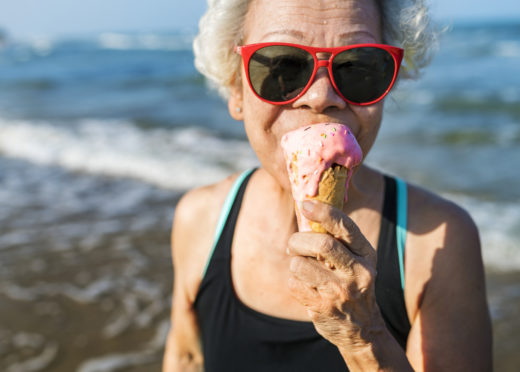
Think positively to keep your brain healthy and lower the risk of dementia in older age, experts have said.
A new report by the Global Council on Brain Health (GCBH) suggests feeling good and being emotionally well is linked with better brain health among over-50s.
Meanwhile poor mental wellbeing, feeling pessimistic and hopeless, could affect how older people think and reason.
Visiting loved ones, getting out and about in the community and staying active are all ways of boosting emotional health, charity Age UK said.
The GCBH, an independent group of scientists, health professionals and academics, reviewed existing evidence to produce advice on improving brain health.
Its report, launched in the UK by partner Age UK, states that greater mental wellbeing is linked with a lower risk of dementia.
It is possible to improve mental wellbeing at any age and regardless of physical health, the experts said, and being able to relate to others is key.
“Even though some people’s thinking skills can decline as we get older, it isn’t an inevitable part of ageing, and we’re learning more and more about what impacts on brain ageing, and what we can do to maintain good brain health later in life,” Caroline Abrahams, charity director at Age UK, said.
“The importance of this report is the connection it makes between positive mental wellbeing and better thinking skills in later life.”
Age UK recommends visiting friends and family, taking part in new activities, exercising and eating healthily to improve emotional wellbeing.
Volunteering, which can “ward off” social isolation and anxiety, and a good night’s sleep can also be beneficial, the charity said.
“Our sense of mental wellbeing is something we can take steps to improve in the same way that avoiding things like smoking, excess alcohol or a poor diet can help to reduce the risk of developing some forms of dementia and cognitive decline,” Ms Abrahams said.

Enjoy the convenience of having The Sunday Post delivered as a digital ePaper straight to your smartphone, tablet or computer.
Subscribe for only £5.49 a month and enjoy all the benefits of the printed paper as a digital replica.
Subscribe